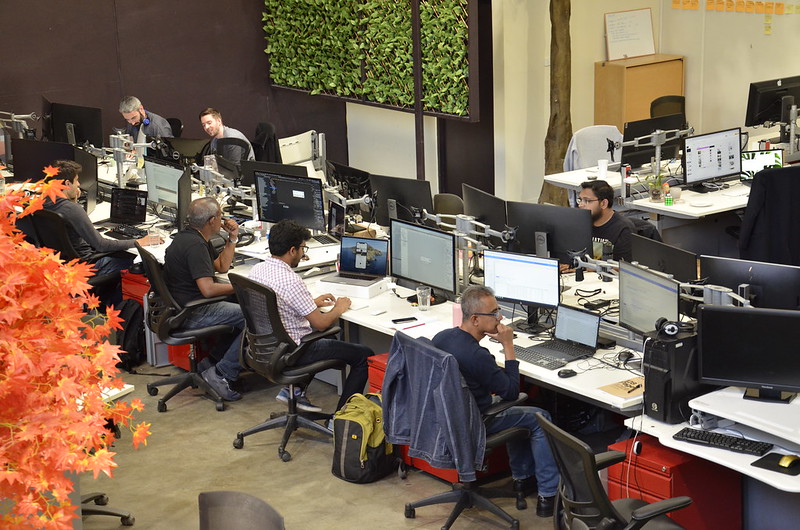Have we missed the wake up call?

Australia is a comfortable place to run a business.
We have a Government that called the pandemic early and minimised the impact. And there’s plenty of business support to get us through the tough times. As a result, it’s a place that’s easy to start and run a business – almost a little too easy.
Stats from the Reserve Bank of Australia show the number of business failures during 2020 are only slightly more than you’d expect. It seems that having more than 40% of businesses accessing government financial support has done the trick.
Compare that to the GFC, when the number of business failures was double – based on the evidence; we appear to have done quite well as a country.
But is that good?
The one thing we learn about success is that we don’t learn from success.
Businesses tend to become complacent when times are good and panic when the market is demanding. It’s easy to cover up inefficiencies when there’s a lot of profit to go around, far harder to gloss over issues when times are tough.
In the past, you’d expect around 14% of businesses to have cash shortfalls. It could be because they are startups or non-profit making organisations. Currently, we see only 12% of companies with balance sheet shortfalls.
In other words, we’re doing quite well compared to other countries – and therein lies the problem.
If we skate through this period relatively unscathed, then we’ll fail to learn the harsh lessons of managing through tough times. So instead, we assume that the good times will continue when we get back to normal – whatever the new normal is.
Meanwhile, countries like the UK, USA and Canada have had a far more challenging time over the past 18 months. Any company that wasn’t efficient enough just disappeared, leaving only sustainable businesses.
Putting aside the suffering of workers, those businesses’ potential to rebound in better shape post-pandemic is significantly greater than Australian businesses.
When we ask ‘what percentage of Australian small businesses would know if their business was more or less productive now’ – the answer is around 35%.
How does that compare to other countries? Badly.
In simple terms, more than 60% of Australian small business owners and founders wouldn’t know if their team was efficient and productive at any given time.
It does come down to definitions – what is ‘productive’ for one business will be different for another. But broadly speaking, for service businesses, it surprising the lack of understanding around team performance.
Sure, we know if we’re closing deals, and it’s easy to assess progress when payments link to milestones. But do we have the insights to determine if our teams are more productive or not?
Measuring productivity is critical to survival. If you can determine what it means to be productive, you can determine what you’re good at and what needs to be improved.
The problem becomes evident as flexible work becomes the new normal.
How can we tell if our teams are more or less productive in the new world of flexible and remote work?
How do employees determine their value to a business if the basis for measuring their worth is poorly understood?
Google recently announced that with more employees moving to remote work and taking the opportunity for ‘tree change’, they should temper salary expectations. Behavioural economists have estimated that workers are willing to value working from home at around 7% of their salary.
The cost of living where you live, it appears, is a component of determining your salary rather than market forces. So for remote workers, as it becomes harder to demonstrate clear value, will they see their wages slide further?
It’s interesting to note that the technologies hailed as the remote work enablers have stopped making claims about their productivity benefits. Instead, Zoom has shifted from hard-edged technology empowering businesses message to a far softer trust-based approach.
It seems technology providers have given up trying to convince us that their tools will answer all our remote work needs.
So where too from here?
It’s in the best interest of business owners and employees to determine the value of their work.
We can no longer use cash flow as a measure of success (if we ever could). At best, generating a profit is a lag indicator of an efficient business.
The shift to remote work will force business owners and employees to discuss valuable work versus busy work. The measure of effort will shift from output to quality.
The quality of what we do, the quality of what we create, and the quality of how we innovate will become the measure when valuing employees.
Quality of Work and Quality of Life is the next big idea.

